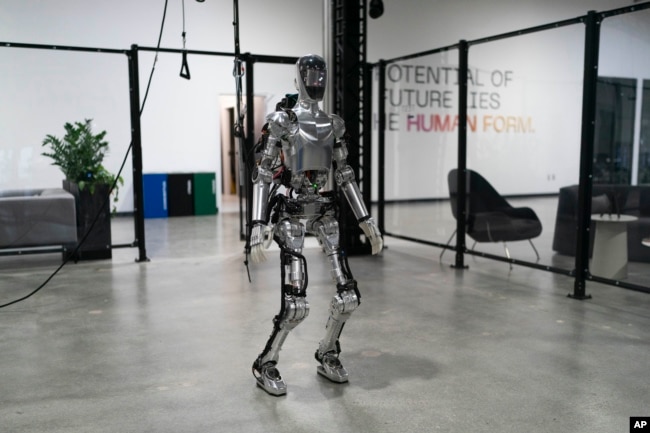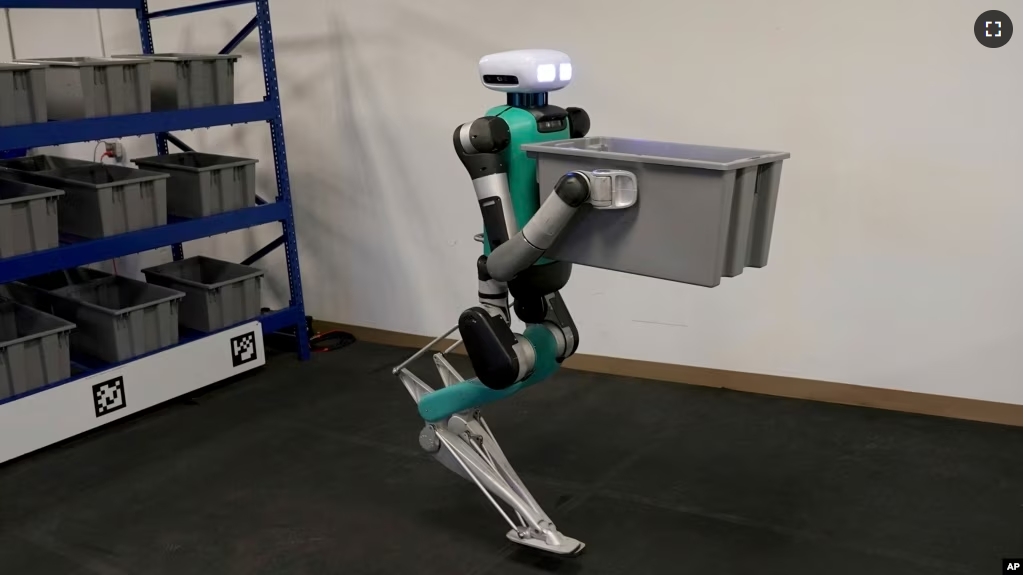Building a robot that is both human-like and useful has been a goal of engineers for many years.
Interest in the idea of artificial intelligence (AI) has created another wave of investment in robot technology to build a human-like robot. But most of the current robot models that aim to look like people are not too effective. They appear to work well in planned performances but not in real life. However, this has not stopped some startups from continuing to develop human-like, or humanoid, robots.
“The intention is not to start from the beginning,’” said Jonathan Hurst. He is co-founder and chief robot officer at Agility Robotics. “We’re trying to make robots that can operate in human spaces.”
Hurst said Agility’s robot Digit is designed to do human things. It is not designed to look like a human.
What it does is pick up objects and move them. Amazon announced in October that the company will begin testing the Digit robot for use in some of its storage buildings. Agility opened a factory in the western state of Oregon in September to mass produce their robot.
Digit has a head containing cameras, other sensors, animated eyes, and an upper body that provides power. It has two arms and two legs, but its legs are not human-like. It looks similar to cats and dogs that walk on the very end of their feet, rather than on flat feet.
Competing robot-makers, like Figure AI, are designing robots differently. The company believes that only human-like robots can effectively work in places built for humans.

Figure AI also plans to start developing robots for simpler uses. But it aims to build robots that can perform more than one job to help take over work from humans.
“There’s not enough people doing these jobs, so the market’s massive,” said Figure AI chief Brett Adcock. He said he believes his company can sell millions or even billions of humanoid robots if it can make a robot do a human’s work.
At the moment, however, Adcock’s company does not have a model that is ready. The company was founded just over a year ago after it raised tens of millions of dollars. Figure AI released a 38-second video of its robot, Figure, walking through its building in California.
Elon Musk, head of Tesla, is also trying to build a human-like robot, called Optimus, in the electric carmaker’s robotics division. But a presentation of the robot’s walking last year did not win over experts in the field.
Agility’s Digit robot caught Amazon’s attention because it can walk and move in a way that would work well with the robots the company already uses. Those robots look like vehicles and work in large buildings carrying heavy loads.
Tye Brady is Amazon’s chief technologist for robotics. He said the way the robot moves “is more interesting” than the way it looks.
Agility Robotics co-founder and chief Damion Shelton said its Digit robot is “just the first use case” of a new generation of robots. He hopes people will embrace robots rather than fear them as they enter businesses and homes.
“So, in 10, 20 years, you’re going to see these robots everywhere,” Shelton said. He added: “…Human-centric robots like that are going to be part of human life.”
I’m Gregory Stachel.
Matt O’Brien reported this story for The Associated Press. Gregory Stachel adapted the story for VOA Learning English.
_______________________________________________
Words in This Story
startup – n. (business jargon) a general term for a new business with a new product which gives no information about the business organization under law
intention – n. the thing that you plan to do or achieve: an aim or purpose
animated –adj. able to move or change
embrace – v. to accept (something or someone) readily or gladly
-centric – adj. having (something) as a central interest, influence, or subject
